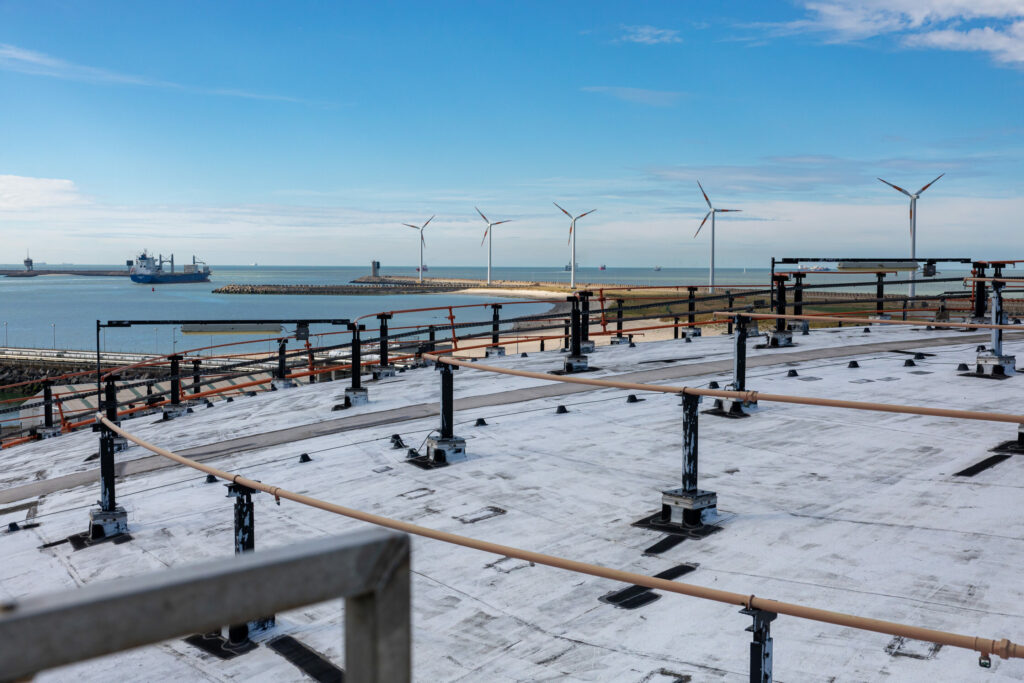Discover expert insights on Belgium's energy policy challenges and future outlook;
✔ Energy policies must focus on reducing Europe's high energy costs to remain competitive.
✔ Solar panel prices have drastically fallen to about €40 each in a decade.
✔ Belgium needs to shift from anti-nuclear ideology to rational energy policies.
What's the Belgian energy outlook in 2025?

2024 was marked by uncertainty and upheaval, with tensions rising around Europe and new challenges emerging within the Union. At the heart of this, Belgium has been rocked by elections that left the country without a government to act on policy decisions.
2025 will be a pivotal year for Europe as it seeks stability and security in a changing global order. The Brussels Times has asked industry experts what developments they foresee and how life in Belgium will be affected.
Professor Damien Ernst is a specialist in electricity networks and teaches at the University of Liège. He speaks regularly on television and in the media about energy policy.
What is the biggest challenge for 2025?
The challenges are various. But for me the main one at both the Belgian and European levels is to return to energy policies designed to reduce the cost of energy. This really should be the absolute priority for Europe.
The wholesale price of gas is four times higher in Europe than in the USA. Meanwhile, China is able to guarantee cheap electricity to its industries because this is largely produced from coal.
This is an issue that we don't talk about enough. If we don't manage to lower our costs of energy Europe's economies will continue to struggle and will be completely unable to compete on the global scale. We need to change our entire energy outlook to focus purely on policies that will provide affordable energy.
The other concerns of energy policy are all secondary, especially when we recognise that our economic competitors make far less effort to reduce greenhouse gas emissions.
What is the outlook in your sector?
I am fascinated by the technological and industrial developments taking place in the field of energy at the moment. There is really a lot to be excited about.
Take solar panels, for instance. We are now seeing them produced for next to nothing, we're talking about €40 per panel today when you would have paid 10 or 20 times that just over ten years ago.
Batteries are also becoming much cheaper: Chinese manufacturers can make them for about €70 per kwh of capacity. The combination of solar panels and batteries is one of the most promising areas for energy advances. Added to this, 2025 marks the return of nuclear, most notably with the arrival of IT giants who are investing in small modular reactors (SMR).
Clearly the technology to decarbonise economies is arriving, which will make it possible to move further than ever from fossil fuels. But there's still a long way to go and our energy systems are so huge that it takes years to alter them.
What does Belgium most need to improve?
There's no hiding that Belgium's energy policy has not been good throughout the Vivaldi legislature. It was directed by a dogmatic "green" minister [Tinne Van der Straeten (Flemish Greens/Groen) ed. note] who was absolutely determined to close Belgium's nuclear reactors.
Europe as a whole has long been plagued by unreasonable anti-nuclear ideologues who make little effort to understand the needs of a healthy economy. Belgium must stop this way of thinking as soon as possible and return to rational politics. Unfortunately we don't have much manoeuvring space to avoid a full-blown energy catastrophe in Belgium.
Will things get better or worse?
This is hard to say. Let's hope that gas prices fall on the wholesale markets as this would give us some breathing space. We're currently around €45/MWh; if this were to fall back down to €25/MWh this would really allow Belgium to sort out its energy issues.
But if prices remain high I fear that economic misery will continue to hang over Belgium. Massive investment is needed in Belgian industries but investors might decide they can't justify the costs in a country where energy prices are so high.
It will be our industrial base that suffers first but we know what follows: unemployment, a growth in public debt, budget cuts, social instability et.c. I'm not sure that Europe has fully understood the stakes and how errors in energy policy could lead to immense repercussions.
How will this impact households?
Europe's cost of living crisis has been driven by the high cost of energy, which we have seen for many months now. Gas and electricity prices are going up significantly and in the short term will rise for households. You can definitely expect a rise of several hundreds of euros every year.
But my main concern for households is as already stated – the erosion of Europe's industrial base. Look at what's happening to Germany's automobile industry. We shouldn't deceive ourselves, lots of households will get poorer if European industry can't turn things around. And only with a concerted and strong political effort will we have any hope of lowering energy prices.
What are the biggest opportunities/developments to watch for?
Belgium clearly has a long way to go with its energy priorities. Most of the clean energy that we use is imported. We really need to build an industry fit for the future with the energy systems to supply it.
Belgium will never be a leader in building batteries or solar panels; Chinese industry is far too powerful on this front. But I think it would still be possible to become a strong player in the nuclear sector. The Belgian national nuclear research centre (SCK CEN) is working on a small reactor that is cooled with lead. I think this offers an opportunity to create an industry around producing this type of reactor.
But we must act quickly as competition is already growing.
